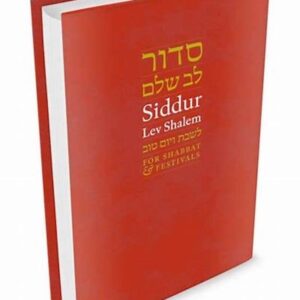Dismantling, packing, recycling, shredding, trashing, emptying, recalling, regretting, resisting, releasing: these gerund days.
Emptying: my office of 31 years.
*
To my friend, I said I don’t believe in the soul. That surprised me: I had never said that before. I don’t know if I’d ever even thought it before. I do know that I felt relieved when I said it, unburdened. Relieved of what? Unburdened of what?
For the first time in 31 years, I did not write an Annual Faculty Record and submit it for “an accounting/before” a department chair, a dean, and a provost. I am now unaccountable. Am I also un-ensouled?
*
Before the world ever was.
Early one morning, while the house was still, still sleeping, you came to me. “[B]rought forth” by the King “from nothing,” a soul “flowed from the heaven’s foundation.” Brought forth by Moshe ben Nahman (known as the Ramban and Nahmanides), an outstanding intellectual of thirteenth century Spanish Jewry, “Before the World Ever Was,” came to me. This “mystical hymn,” writes Gershom Sholem, depicting “the birth of the soul in the depth of the divine spheres from where its life streams.” Brought forth (translated) by Peter Cole, this poem came to me.
*
You ask, what are my plans. You want to know, will I travel? My plans? I was formed from dust. To dust I will return. Until then, your breath in me.
Your breath, or yours? To whom am I speaking? Whose breath enters me and leaves, enters and leaves? Who or what in me, brain-fogged from another night of poor sleep, chose The Poetry of Kabbalah: Mystical Verse from the Jewish Tradition, translated and annotated by Peter Cole, to read that morning? Who or what in me, half hoping for something that would burn off the fog, turned to “Before the World Ever Was”?
*
Soul says,
He brought me forth from nothing and in
the end I will be withdrawn by the King.
Soul says,
He appeared to reveal what once He’d concealed….
Soul (or is it body?) says,
I was formed from dust, though your breath in me burns.
Cole notes that in this and the three lines that follow, “the speaker seems to be both the soul and man.”
*
That morning, this man strained to be brought forth from nothing. He (I) read, hoping that words on the page would not conceal a voice but would reveal it and that the voice would speak not only to him but within him, awakening him.
*
But it wasn’t soul’s journey from its origins in the divine into the world, “a land of drought and starvation,” of “wanting,” “vanity,” “contrition,” “iniquity,” “guilt,” and longing to return to its “former state,” to its origins in the King, that called to me that morning. It was just this, this phrase: “your breath in me.” Not even the entire line in which it lives: I was formed from dust, though your breath in me burns. Just your breath in me, relieved of the burden of I was formed from dust, though, and burns. Just this essence.
*
In The Grammar of God, which I am rereading, Aviya Kushner directs her attention to the two slightly different versions of the ten sayings (commonly referred to as the Ten Commandments) which appear twice in the Hebrew Bible, once in Exodus and once in Deuteronomy. Avraham ibn Ezra, the twelfth century Spanish Jewish commentator and poet, recalls Kushner, “writes that every word has a body and a soul, and that while these two versions may have different bodies, they have the same soul.”
*
Your breath in me.
“…the Lord God formed man from the dust of the earth and He blew into his nostrils the breath of life (nishmat hayyim) and man became a living soul (nefesh hayaw)” GEN 2:7.
“God said, ‘My breath (ruhi, from ruach) will not govern man forever, since he is flesh…’” GEN 6:3.
Nefesh, ruach, neshamah: three words for spirit or soul in the Hebrew Bible.
One of those words here, in “Before the World Ever Was,” too: your breath (ruach) in me.
*
My practice these days: your breath in me, your breath in me, your breath in me. Just that. Repeating that phrase. Attending to the experience of your breath in me, the physical sensations of it in a body, this body, my body. Awakening to the fundamental nature of human life: this breath, drawn in, released, drawn in, released, not mine, yours.
No me without you. Who? You, oceans, green plants, sources of the oxygen without which I cannot live. You, King, Divine, God? Me? Me, medulla, autopilot for breathing; me, diaphragm contracting and releasing; me, lungs, alveoli, blood, heart—the whole wondrous body. Me, nefesh, ruach, neshamah?
*
Your breath in me. The words give rise to ideas, an idea of “you,” an idea of “breath,” an idea of “in,” an idea of “me.” Repeated softly, internally, the words also point beyond themselves—to the condition, the experience of being a body, a body wholly dependent on that which is beyond it, over which it has no control, to live. What else to feel but wonder? How else to live but in a way that is informed, step by step, bite by bite, utterance by utterance—breath by breath, of this fundamental truth: Breath comes in. I am alive.
Even here, alone in the office, my office for another moment, the filing cabinets empty, the desk empty, the bookshelves, but for a few volumes, empty, the classrooms empty, the early summer hall quiet, I am not alone. I am not even “I” without “you.” Belief is extra. Experience is simple, direct. Just pay attention: your breath in me, your breath in me, your breath in me.
Richard Chess directed the Center for Jewish Studies at UNC Asheville for 30 years. He helps lead UNC Asheville’s contemplative inquiry initiative. He is a board member for the Center for Contemplative Mind in Society. He’s published four books of poetry, the most recent of which is Love Nailed to the Doorpost. You can find him at http://www.richardchess.com





